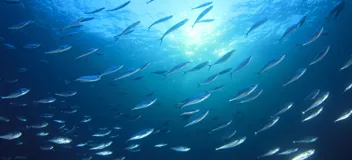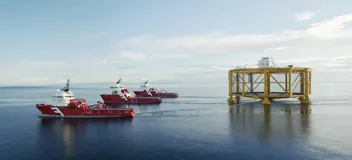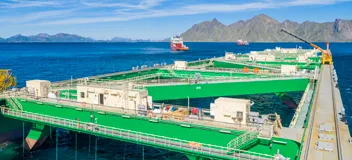Offshore Aquaculture
DNV: your partner for safe and sustainable aquaculture projects
Offshore aquaculture
Aquaculture is moving further offshore, and technology is evolving rapidly to produce fish at a scale and in locations never seen before. DNV can help your operations grow in a safe, sustainable way.
DNV has the experience to support offshore aquaculture projects
You will benefit from our extensive experience with inshore and onshore fish farming projects, assurance of offshore constructions and operations, risk management of marine and offshore units and sustainable programmes for fish and fish well-being.
DNV Rules: Offshore fish farming units and installations
DNV rules for classification contain procedural and technical requirements related to obtaining and retaining a class certificate. The rules represent all requirements adopted by the Society as basis for classification.
OCEAN FARM 1 receives first ever offshore fish farming class certificate from DNV
Owned and operated by SalMar, Ocean Farm 1 is the first salmon farm designed and built for exposed operation, with a novel design that combines solutions from aquaculture and the offshore industry.
Havfarm
Ordered by the Norwegian company Nordlaks, the 385-metre-long ship-shaped Jostein Albert Havfarm is a revolutionary salmon farm which was built to hold 10,000 tonnes of fish in six 47 x 47-metre nets.


